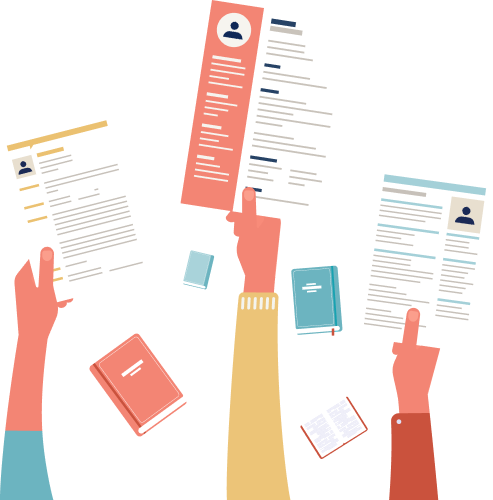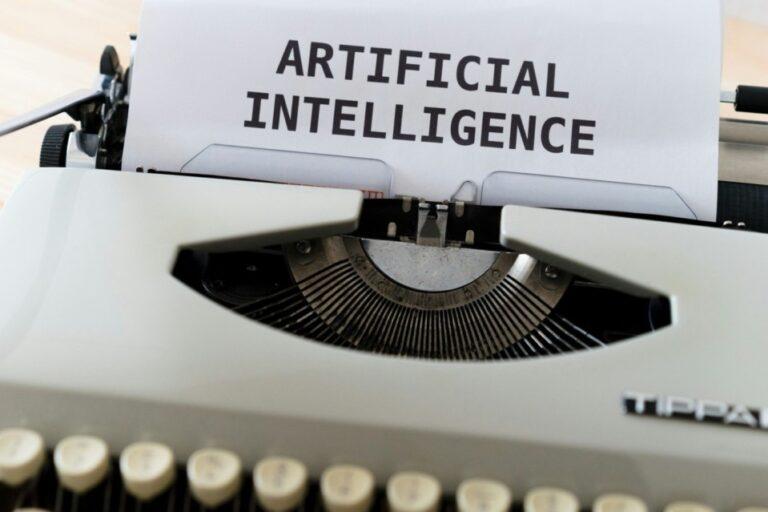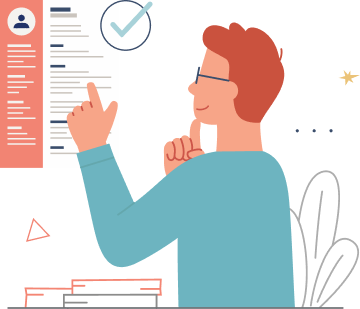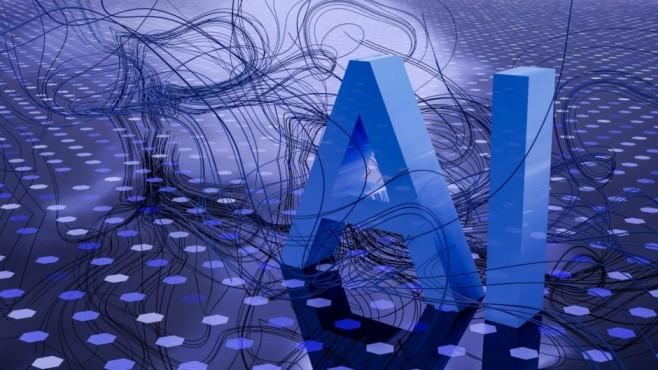Jobs AI Can’t Replace (And Probably Never Will)
AI isn’t the future of work; it’s already here. Algorithms are writing code, automating logistics, reviewing legal documents and generating marketing copy in seconds. Entire industries are being reshaped, and some roles are already disappearing. The impact, however, is uneven — some jobs face far greater disruption than others.

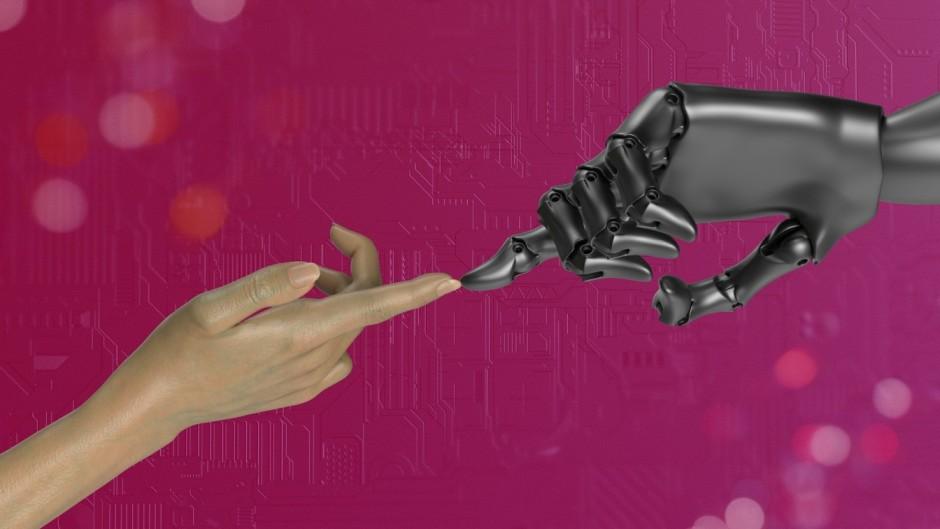
Our customers have been hired by: *Foot Note
The Rise of AI
Projections from institutions like Goldman Sachs suggest AI could replace the equivalent of 300 million full-time jobs, with estimates that 14% of the global workforce may need to change careers by 2030. In the US, 47% of workers could see their roles come under threat from AI in the next decade. But while the scale of disruption is real, the level of exposure varies greatly depending on the type of work.
That’s because AI’s strengths—and its limits—are not evenly distributed. AI has made impressive progress in fields like data processing, logistics, and content generation; yet it still falls short in key areas.
Roles that demand empathy, physical adaptability, ethical judgment, or true creativity remain largely out of reach, not only because of current technical constraints but because of the very nature of those jobs.
Why Some Jobs are Safe: The EPOCH Model
Research from the MIT Sloan School of Management provides a robust framework for identifying the human-intensive capabilities that AI lacks. The EPOCH Model outlines five core domains where humans maintain a distinct advantage, making jobs rich in these skills highly resistant to automation.
These five traits — Empathy, Physicality, Originality, Context, and Human judgement — form the basis of work that machines struggle to replicate. The following categories explore each in more depth, along with examples of roles where these qualities are essential.
1. Jobs that require empathy and emotional intelligence
AI can simulate conversation, detect sentiment, and even generate soothing responses. But genuine empathy, the ability to feel with someone, read emotional subtext, and respond compassionately in real time, remains firmly human.
These roles depend on it:
- Nurses and care workers provide not just physical assistance, but emotional reassurance in vulnerable moments.
- Mental health professionals help clients process trauma, grief or anxiety through active listening and intuitive guidance.
- Social workers handle complex family dynamics where trust, timing and empathy can shape life-altering decisions.
Why AI can’t do it:
Empathy isn’t just about saying the right thing; it’s about knowing when and how to say it. It requires lived experience, emotional context, and the ability to connect on a human level. No algorithm can replicate the feeling of being truly understood. AI can offer something resembling that, but not the real thing.
2. Jobs that rely on skilled, adaptive physical work
This domain covers roles that rely on physical presence, real-world adaptability, and the ability to build trust through in-person interaction. Unlike machines, humans can navigate unpredictable environments, read social cues, and adjust their behaviour on the fly.
AI might perform well in controlled settings, but it struggles with the complexity and variability of the physical world. To emphasise the gap, consider that simply making a robot walk in a more or less human way was once a massive engineering feat — and remains imperfect even today. That limitation highlights why many jobs requiring movement, dexterity, and human connection are far more challenging to automate.
These roles depend on it:
- Tradespeople like plumbers, electricians and builders work in unpredictable settings that defy standardisation.
- Firefighters and paramedics make split-second decisions in high-pressure, dangerous conditions.
- Mechanics and engineers must diagnose issues that aren’t always detectable by sensors or data alone.
Why AI can’t do it:
Robotics has made huge strides, but dexterity, spatial awareness and adaptive problem-solving remain far behind human capability.
3. Jobs involving complex opinion, judgment, and ethics
Many professions are built around the need to make nuanced decisions where facts are only part of the equation. These situations require weighing competing interests, considering moral implications, and taking responsibility for the outcome.
These roles depend on it:
- Judges and barristers interpret the law in situations where context, precedent and fairness often clash.
- Social workers in safeguarding roles must make urgent, high-stakes decisions with incomplete information.
- Senior leadership roles: CEOs and executives are responsible for setting strategic vision, managing complex stakeholder relationships, and making ethically-grounded decisions for which they are ultimately accountable.
- HR professionals and recruiters evaluate not just skills and experience, but also cultural fit, potential, and long-term value to the organisation. While AI is often used for initial screening, the final hiring decision requires human insight. For job seekers, this makes having an ATS-friendly CV essential to ensure your application passes the first hurdle and actually reaches a human reviewer.
Why AI can’t do it:
AI can be trained on rules, but not on values. It can’t reason ethically, weigh long-term consequences, or understand social nuance. At best, it offers probabilities, but many human decisions involve ambiguity, compassion or defiance of logic, none of which AI can account for.
4. Jobs rooted in creativity and imagination
AI can compose music, write articles, and produce images, but it works entirely from what already exists. It cannot originate ideas with intention, push creative boundaries in response to shifting cultural moments, or truly understand the meaning behind its creations.
These roles depend on it:
- Creative directors who shape the overall vision for a project, integrating design, messaging, and brand strategy in ways that respond to real-time market trends and human feedback.
- Actors and performers who rely on timing, irony, and nuanced audience reactions, none of which machines can genuinely master.
- Campaign strategists who craft narratives that connect with live cultural conversations, movements, and social undercurrents.
Why AI can’t do it:
Creativity is more than producing something that looks or sounds new; it’s about knowing why it matters now, in this cultural moment. Humans draw from lived experience, instinct, and shared understanding to create work with purpose. AI can remix and imitate, but not innovate with intent.
5. Jobs focused on human presence and trust
In some roles, who delivers the service matters just as much as what is being delivered. These jobs rely on interpersonal trust, emotional support and social presence. When people are in distress, uncertainty or moments of significance, they want to interact with someone who understands, cares and connects.
These roles depend on it:
- Midwives and birth coaches support individuals through deeply personal, vulnerable experiences where empathy and reassurance are just as vital as clinical knowledge.
- Therapists and counsellors build relationships over time based on trust, emotional safety and non-verbal understanding.
- Mentors and coaches provide guidance, encouragement and presence rooted in mutual respect and personal connection, not scripted advice.
Why AI can’t do it:
Trust isn’t built through perfect information, it’s built through presence, vulnerability and connection. In moments that matter, people want someone who understands what they’re going through. AI may fill gaps, but it’s no substitute for deep emotional engagement.
Where AI has Already Taken Over
While many roles remain resistant to automation, others have already been reshaped or replaced entirely by AI and related technologies. These changes are not part of some distant future. They are happening now, and they are gaining speed.
AI excels in environments where tasks are repetitive, data-heavy and rule-based. It does not need creativity or emotional understanding to work effectively. It simply follows patterns, processes and large-scale inputs. This makes certain job types especially vulnerable.
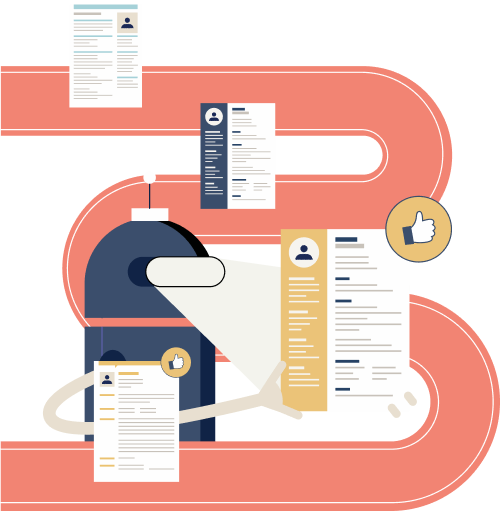
Examples of jobs AI has already replaced or transformed
- Data entry clerks
AI-powered tools can input, sort and manage large volumes of data far more efficiently than humans. Many roles in finance, logistics and administration have already been phased out. - Basic customer service agents
Chatbots and automated systems now handle a significant share of customer enquiries, particularly for simple or repetitive issues. While more complex problems still require human support, many frontline roles have been reduced. - Retail checkout workers
Self-checkout stations and automated payment systems have replaced many cashier positions. In some settings, cashier-less shops using sensors and cameras are already in operation. - Legal researchers
AI tools are now capable of reviewing contracts, identifying legal risks and scanning case law quickly and accurately. While legal professionals are still needed, much of the routine work can now be automated. - Basic copywriters and content creators
AI writing tools can generate marketing emails, product descriptions and search-optimised content with minimal input. While high-level creative roles remain human-led, lower-level writing is increasingly automated. - Warehouse operatives
Companies such as Amazon have implemented robotic systems to move products, monitor inventory and organise layouts. Human workers are still present, but often in smaller numbers and more supervisory roles.
Why were these jobs vulnerable?
What these roles have in common is predictability. They follow set rules, involve limited social or physical complexity and leave little room for human variation. For AI, these are ideal conditions.
This does not mean all jobs in these sectors will disappear. However, the nature of the work is shifting, and many roles that were once considered stable are now under serious pressure.
The Future of AI: The Shift Toward Human & AI Collaboration
While some jobs are being automated out of existence, the bigger story may be how AI is changing the nature of work itself. Rather than replacing humans outright, the trend is moving towards collaboration, where AI handles the routine, and humans bring the insight, empathy and creativity. For many professions, AI will handle the repetitive and data-intensive tasks, freeing up human professionals to focus on what they do best.
This shift is being shaped by two significant developments: the rise of the augmentation model, and a fundamental change in the types of skills employers value most.
The augmentation model: AI as co-pilot
In this model, AI doesn’t replace workers; it supports them. By automating repetitive, time-consuming tasks, AI frees people to focus on more complex, strategic or interpersonal work. A helpful comparison is the way pilots use autopilot during non-critical stages of flight. The system handles routine control, but the human pilot stays alert, monitors performance and takes over when judgment or real-time decisions are needed.
- Case in point: Research from Stanford on the accounting profession found that AI tools are already handling tasks like transaction classification. This allows accountants to move towards higher-value advisory roles, effectively turning AI into an expert assistant rather than a threat.
- Boost in productivity: Data shows that sectors most exposed to AI are experiencing a nearly fourfold increase in productivity growth.4 Rather than replacing workers outright, AI is helping them accomplish more by working alongside intelligent systems.
A shift in valued skills
As machines take over more analytical and rule-based tasks, the value of human-centred skills is rising fast.
- Interpersonal skills are in demand: A Stanford study predicts a declining wage premium for purely analytical skills, and a rising premium for skills that require human interaction, coordination, teaching, and emotional intelligence.
- Faster disruption in skill needs: Roles most exposed to AI are seeing skill requirements change 66% faster than the average. This highlights a rapid shift in what employers are looking for. Adaptability and the ability to work with AI are becoming key.
Human Qualities Will Still Define the Jobs of Tomorrow
The idea that AI will wipe out most jobs does not match the current evidence. While AI is changing how we work and will automate many routine tasks, it is unlikely to replace entire industries any time soon. The roles that are safest tend to rely on very human qualities, such as empathy, creativity, critical thinking, and physical skill.
Rather than replacing people, AI is beginning to support them. We are seeing a shift where technology handles repetitive tasks, while humans focus on what they do best, making decisions, solving problems, and connecting with others. This means the value of interpersonal and strategic skills is rising.
The jobs that thrive tomorrow will be those that combine smart use of AI with strong human judgement, care, and creativity.
Key Takeaways: Navigating the Age of AI
- AI is already reshaping the workforce, especially in roles based on repetition, data handling and rule-based tasks.
- Not all jobs are equally vulnerable. Roles rooted in empathy, physical dexterity, creative originality, human judgement and trust remain resilient.
- Human-AI collaboration is the emerging norm. Rather than compete or replace, many jobs will evolve through augmentation — using AI to enhance human abilities.
- Skills and adaptability matter more than ever. As AI transforms the job market, the ability to learn new tools, develop human-centred skills, and adapt to changing roles will be key to long-term career security.
- Considering a career shift? If you’re looking to move into a role that’s more resistant to automation, check out our CV examples for guidance on how to position yourself for different roles.

Andrew Smith
Senior Content Writer
Meet Andrew Smith – an accomplished English copywriter with a strong background in SEO optimisation. Passionate about producing engaging content, Andrew has written across various fields, including health and fitness, security, travel, and tourism.
*The names and logos of the companies referred to above are all trademarks of their respective holders. Unless specifically stated otherwise, such references are not intended to imply any affiliation or association with myperfectCV.



